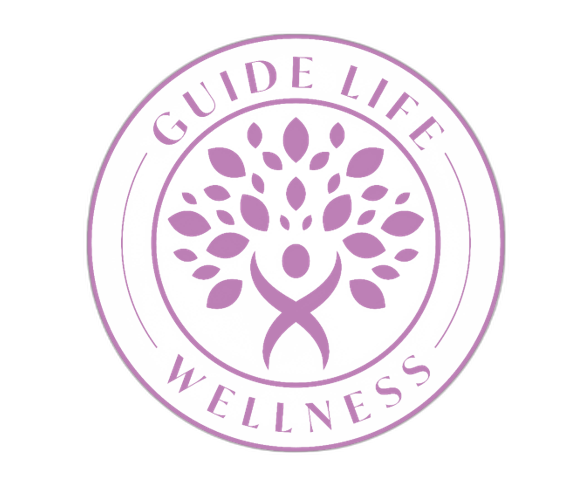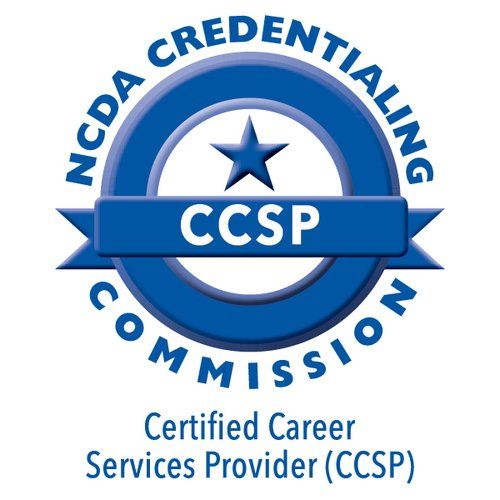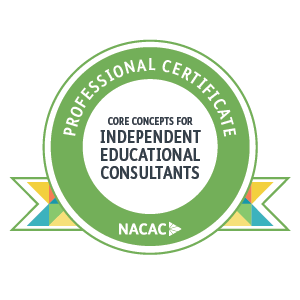When I set out to become a certified career service provider, I had no idea my final assignment would evolve into something that would transform how I work with families going through the college application process
It started out with a detailed timeline and checklist running through the end of the year. I added my logo, made it digital with checkable boxes, and submitted it as one of my finals. Then I wrote an article, Leveraging Technology for College Prep and Career Success: 5 Tech Tips which was selected and published.
But once I started doing college advising, I realized students needed so much more than just a timeline starting in September when they go back to school. They needed a comprehensive guide. So, I kept building, adding more content, finding more resources, creating tools. What emerged is now a full guide that tackles everything from career assessments to essay writing, LinkedIn profiles to budgeting. Literally everything a student and their family needs.
More Than a Checklist
The Road to College Index isn't your typical college prep guide. I spent a significant amount of time researching and finding links to practical resources that students can actually use. Take SAT prep, for example. The Index includes links to California prep testing sites where students can study, not just read about studying. It's a complete guide to get you through the entire year, and it's designed for both students and parents to follow along together. Parents can be as hands-on or hands-off as they want, but if they want to see what their student is doing besides the work we do together, they can follow along with the checklists.
The Essay Writing Challenge
One of the sections students focus on most is essay writing. With application essays ranging from 350-word UC Personal Interest Questions (UCPIQs) to 650-word Common App essays, students face intensely personal prompts about failures, challenges, and defining moments.
My approach is strategically old-school in our AI-saturated world, and for good reason. “Can I use ChatGPT?“ is one of the first questions I get asked. The answer is no. It will get flagged. Essays ask personal questions such as How has something affected you? What failures have you encountered and how did you overcome them? The colleges want to hear the student's authentic experiences.
My process works like this: students brainstorm first, then start answering questions and building something in-depth. I take their essay and fix grammar, check that everything flows properly, and give them advice on corrections. It's a process in itself. I may run it through an AI checker as a double-check to see if everything flows and if they're missing anything from the question that I might not have picked up, but the writing must be authentically theirs. It teaches them real-life skills about how to think and write in their own voice.
Building Professional Foundations Early
Another section in the Index is how to create LinkedIn profiles, resumes, and portfolios (depending on which colleges they're applying to. Ivy League schools often want a portfolio, which is almost like a business plan with a heavy-duty resume). For LinkedIn, I have details on how to build a profile for someone in their age group. I've seen some incredible testimonials from families about how this guidance gave their students a boost in opportunities.
The Index also includes practical life skills often overlooked in college prep such as budgeting tools and apps, letters of recommendation strategies, resources for grants and scholarships, parent resources, career exploration tools and internship research.
Starting Early, Staying Flexible
While the Index is essential for high school seniors, I encourage students to start earlier. I work with 11th graders on pre-prep work, and I even work with 9th graders who are trying to choose career pathways. Some students are stressed about the future and not sure what career to get into. I wouldn't know either at that age honestly. The Index helps them build career pathways early.
If someone's going for a science-heavy profession, they need to take chemistry. If they don't like chemistry, they might want to choose a new career. It's better to figure that out in 9th grade than after you've already committed to a major. And if students change their minds later? That's perfectly fine. The path can always shift. They'll take undergraduate courses with electives to explore, and I help research internships in their area so they can get real-world exposure and truly understand if it's the right fit.
The Journey Simplified
The Road to College Index helps students jump to any part they need. For some, it might feel overly detailed, but I'd rather give families more information than not enough. Every client receives the Road to College Index automatically, and I customize it based on their grade level. For 11th graders, I pare it down to what's relevant for them. Then I walk through it with them from the very beginning. Some of my students already know what they want to do career-wise, so they might skip the assessment sections. Others need help exploring options. Either way, the manual adapts to their journey.
Journey Value
If I had to summarize the value of the Road to College Index, I'd say it's about the journey itself. Simplify for students and families how to go through the college prep process with confidence. I want to give students the tools they need not just to get into college, but to succeed once they're there and beyond. This is about building foundations for their future that will serve them for life.
If you're interested in learning more or working together, I welcome you to schedule a complimentary consultation. You can also hear me talk about The Road to College Index in this podcast episode I was a guest on.





